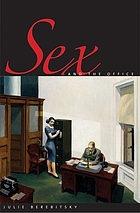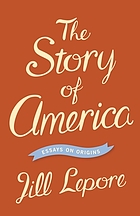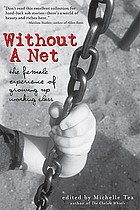 |
| Teazle likes to help me with my book reviews. |
A couple of titles will get actual honest-to-god reviews in the fullness of time, and I've noted which ones those be.
Bell, Leslie C. Hard to Get: Twenty-Something Women and the Paradox of Sexual Freedom (University of California Press, 2013). Sociologist and psychotherapist Bell explores contemporary sex and relationship patterns among a group of young women in the Bay Area as a way of identifying larger themes of change and struggle in our half-finished revolution in gender role expectations and sexual mores. While necessarily limited in its scope, Hard to Get is refreshingly non-judgy about young women's sexual practices and while Bell doesn't articulate her findings in quite this way, I would argue that her subjects' relationship success is strongly correlated with the degree of gender independence they and their sexual-romantic partners enjoy. [Review to come.]
Berebitsky, Julie. Sex in the Office: A History of Gender, Power, and Desire (Yale University Press, 2012). Historian Berebitsky has written an insightful and entertaining history of wanted and unwanted (hetero)sexual expression in white collar settings, 1860s to the present. Beginning with the entrance of women into office work, Berebitsky explores how the newly-heterosocial white collar workspace led to a reconceptualizing of the office as a space for flirtation, romance, and exploitation, as well as attempts to police heterosexual interaction in complex and evolving ways.
Boylan, Jennifer Finney. Stuck in the Middle With You: A Memoir of Parenting in Three Genders (Crown, 2013). A raw feeling memoir about parenting as a transgender person, Stuck in the Middle combines first-person narrative with transcripts of interviews Boylan conducted with friends and acquaintances about fatherhood, motherhood, and parent-child relationships. While I felt it could have used a stronger editorial hand and guiding purpose, I particularly appreciated the interview sections. [Reviewed in slightly more depth at LibraryThing.]
Brownson, James V. Bible, Gender, Sexuality: Reframing the Church's Debate on Same-Sex Relationships (W. B. Eerdman's, 2013). Brownson, a New Testament theologian, grounds his case for the inclusion of same-sex sexuality within the realm of Christian sexual ethics in a close reading of the Biblical texts from a historically-minded, broad-themes perspective. While he often concedes too much to anti-gay conservatives, in my opinion, and draws too little on the work of queer and feminist theologians who have gone before him, hopefully his skillful and compassionate hermeneutics will encourage some to rethink their faith-based condemnation of homosexuality. [Full disclosure: Jim is the father of a good friend of mine, and holds a faculty position at Western Theological Seminary named for my late grandfather James I. Cook, who I feel confident would approve of this book.]
Grogan, Jennifer. Encountering America: Humanistic Psychology, Sixties Culture, and the Shaping of the Modern Self (New York: Harper Perennial, 2013). In a book I devoutly wish I could have read while crafting my thesis, cultural historian Jennifer Grogan explores the origins, insights, and effects of one of the partial revolutions of mid-twentieth-century America: the humanist psychologists' campaign to re-form the practice of psychology and the modern concept of the human Self. Grogan is a skillful historian and writer who manages to write with deep sympathy for her subject without glossing over the limitations of her subjects' vision and practice.
Kipnis, Laura. Bound and Gagged: Pornography and the Politics of Fantasy in America (Grover Press, 1996). In the wake of the "porn wars" of the 1980s and the resurgence of moral panic around sexual expression, Kipnis, a professor of media studies, pushed back against the conflation of fiction and reality in Bound and Gagged: how acceptable or tenable is it to police peoples' fantasies, and to what extent is it fair to assume that peoples' fantasies translate into real-world desires? In case-study fashion, Kipnis points to the way America in the mid-90s was (and still is) appallingly comfortable policing the imagination, particularly where sex is concerned.
Lepore, Jill. The Story of America: Essays on Origins (Princeton University Press, 2013). Historian and masterful essayist Jill Lepore offers, in her latest book, a series of essays that first appeared in the New Yorker on various topics on American history. All revolving in some way around the printed word and the narratives we tell to make meaning of our lives, The Story of America explores how we have made sense of being American during the first 24 decades of our nation's youthful existance.
Pleck, Elizabeth M. Not Just Roommates: Cohabitation after the Sexual Revolution (University of Chicago, 2012). Historian of human development Elizabeth Pleck explores an under-studied aspect of the mid-twentieth-century's "sexual revolution": the rise in cohabitation by sexually-intimate yet unmarried partners, and the continued discrimination unmarried couples face in our marriage promotion-happy nation. Roughly chronological in its organization, Not Just Roommates begins with the persecution of cohabiting interracial couples in the early 1960s and ends with activism around domestic partnership registration as a marriage alternative -- laying out a convincing case for discrimination against the unmarried as pervasive and harmful in the lives of many. [Review to come.]
Speck, Jeff. Walkable City: How Downtown Can Save America, One Step at a Time (Farrar, Straus & Giroux, 2012). Urban planner Jeff Speck offers lessons from several decades of experience redesigning urban core areas on how to make our major metropolitan areas more environmentally sustainable and conducive to human well-being. While I quibble with some of his minor points (for example he finds extensive green spaces boring), his overall vision of a "walkable" urban environment is one I can get behind, and reading this book has prompted me to be more mindful of my own built environment -- and proud of how walkable our Allston-Brighton-Brookline-Back Bay area of Boston truly is!
Tea, Michelle, ed. Without a Net: The Female Experience of Growing Up Working Class (Seal Press, 2003). This powerful anthology offers up diverse voices of women who experienced a working class, and sometimes destitute, childhood. Contributors' stories range from stomach-turning accounts of abuse and neglect at the hands of healthcare providers to lighthearted tales bordering on the "we were poor but never knew it" to deeply thoughtful reflections on what it means to escape poverty even as you watch your parents continue to struggle: highly recommended.
Williams, Linda. Hard Core: Power, Pleasure, and the "Frenzy of the Visible" (University of California Press, 1989). Pioneering scholar in the field of pornography studies, film studies professor Linda Williams explores "hard core" moving image pornography through the lens of film conventions, asking how it might be understood as a genre in its own right (my favorite chapter was the one that explored pornographic film as a sister-genre to the movie musical, a bare-bones narrative punctuated by sexual "numbers"). While some of her observations feel outdated in this age of the Internet, and I'd argue she concedes too much to the anti-porn feminists, Williams' work is still key in the field and offers much food for thought.




No comments:
Post a Comment